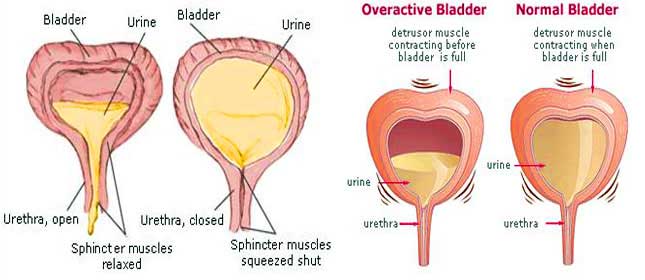
By 2021 the global demand for adult diapers will be over $14.5 billion USD. The reality is that in many cases they could be healed and live without any urinary problems.
We talked about the incontinency, prostate cancer, and screenings with FirstMed urologist Dr. Miklós Romics.
You have many doctors in your family, your father being a urologist as well. Was it always obvious that you will take this path?
There were many doctors in my family. My uncle was a professor of internal medicine and university rector, my dad is a urologist and professor of urology, my mother is a pediatrician and university professor, etc. With this background, I felt that I got an handwritten invitation for this profession since I was a child.
During medical school I was participated in many pathological and urology research studies and internships so it became even more obvious that I was on track to becoming a urologist. After I learned the basic urology and uro-oncologist knowledge, my interest grew in the fields of uro-gynecology, incontinence and neuro-urology.
One of the first things I think of when discussing urology is prostate cancer, maybe it because of my family’s history with it. I’ve hear various ages when a man should start getting his prostate checked, according to your knowledge when is the right time to start going to prostate screening?
After the age 45 it is recommended for men to have a screening once a year. Of course if you’ve had a first degree relative who’s had prostate cancer it is recommended to start earlier. Typically, the examination consists of a blood test, screening for specific protein levels – the PSA, and a manual rectal examination. It’s over before you know it and even though it might be a little uncomfortable it doesn’t cost any pain.

Why isn’t the PSA test enough to determine the possibility of cancer?
The internationally accepted “abnormal serum level” of PSA (prostate-specific antigen) was defined as above 4.0 ng / ml. Unfortunately everybody is different so a lower PSA level doesn’t guarantee a man is free of cancer, just like a higher level doesn’t mean he has cancer. This is why the blood test is not enough just by itself. In addition, during rectal examination, the fingers can provide useful information on prostate size, softness, and sensitivity, thus excluding prostate inflammation, which also increases PSA.
What would you say to those who don’t go to these tests?
Since prostate screening is not required, a lot of people don’t feel that they need to go or they don’t even hear about prostate cancer or prostate cancer screening. The bigger problem is that even those who do know they need the exam are put off by something – they might feel tha it is embarrassing or uncomfortable. They need to understand that prostate carcinoma is the second most common cancer among men. 1 in 9 men will be treated for it in their lifetime.With a simple and gentle examination, it can be discovered early and treated.
What is the healing rate for this tumor type?
If we find the cancer in an organ-confined stage (without any metastases) , there’s a really high chance of healing and survival. One of the reasons behind this is that the removal of tumorous prostate (so-called radical prostatectomy) is being performed in many places and in high-performing surgery, with both open and laparoscopic technique.
Do you perform these kind of surgeries?
No, it is my focus to discover the cancer and I will leave it up to a specialist to do the removal. I feel confident in leaving my patients in the hands of my colleagues (radical prostate surgeons) who do this every day; they do a fantastic job.
What are the warning signs of possible prostate cancer?
Despite the false facts, there’s no early warning symptoms of cancer which is why the screening is recommended. If you wait to long to have other symptoms appear, e.g. problems urinating, blood in urine or semen, ED, etc, then it is possible this is an indication of advanced prostate cancer. Check early before it progresses to this stage.
Let’s talk about the incontinence! Maybe it affects more people.
Yes, the involuntary loss of urine is very common. 5% of women over the age 18 and 30% of the women after 50 suffer from this. There are basically three types of urinary incontinence:
- Stress incontinence when the urethral sphincter is weak. It mostly happens after giving birth or due to overweight or because of elderly age. For men it is common after prostate operation.
- Overactive bladder (urge incontinence). People who suffer from this type of incontinence have very sudden urination need and have to go to the bathroom right away or they can’t hold it in and in some cases they have urine loss. This condition occurs both men and women.
- Mixed incontinence is, as the name suggests, a combination of both types. It is common for men who have had a prostate removal or surgery for enlarged prostate.

Often these conditions may be easy to manage. The sphincter problem can be improved through exercises, physical therapy or if nothing else works, surgery. For urinary loss due to bladder hyperactivity there are medicine treatments.
Are there other factors that could lead to incontinence?
Being inactive, obesity and smoking are definitely factors that lead to incontinence. By leading an active life, staying being in good shape, and eating healthy can help save people from later inconveniences but I guess you can say this in practically any medical field.
Why don’t patients seek medical help for incontinence?
I think most people fail to seek help due to embarrassment. Only about the 10% of sufferers wind up seeking professional help but the rest don’t either because they are ashamed, think that it’s just because of their age, or are unaware of solutions. People who suffer from incontinence usually become socially isolated fearing loss of control in front of others or the pervasive smell of urine. This leads to those afflicted to become depressed and inactive. The sadder element is that often there are solutions.
Dr. Miklós Romics is a FirstMed Urologist. Currently FirstMed runs a special offer for a Men’s Health Screening which can be found via this link. If you are 45 or older, or with a family history of prostate cancer please speak with your doctor about a screening for Prostate Cancer.




